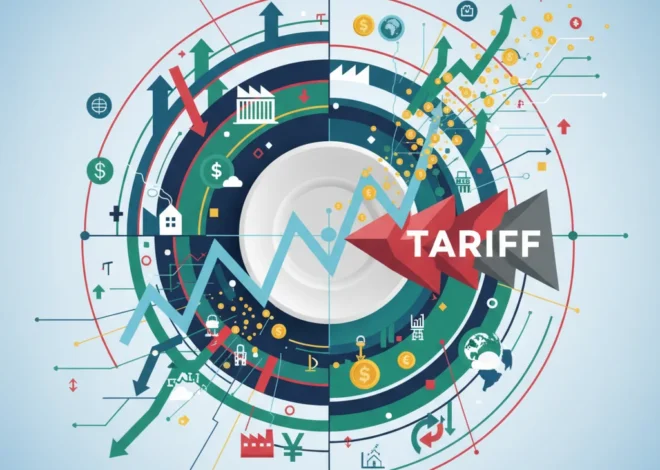
The End of an Arbitrage Empire? Unpacking the UK’s Ban on Ticket Resale and Its Economic Ripple Effects
For millions of fans, the experience is painfully familiar: a blockbuster concert, a championship sports match, or a West End theatre debut is announced. Tickets go on sale and, within minutes, they vanish, only to reappear moments later on secondary websites at prices many times their original face value. This long-standing frustration has finally prompted a major government intervention. In a move set to send shockwaves through the multi-billion-dollar live events industry, UK ministers have announced plans to ban the reselling of tickets for music, theatre, and sport at prices above their face value. According to the BBC, this policy aims to dismantle the infrastructure that allows professional touts to profit at the expense of genuine fans.
While this news is a welcome headline for consumers, its implications run far deeper than just the price of a concert ticket. This regulatory shift is a direct intervention into a vibrant, if controversial, free market. It represents a classic case study in economics, posing fundamental questions about price controls, market efficiency, and the unintended consequences of regulation. For investors, finance professionals, and business leaders, this isn’t just a story about entertainment; it’s a story about market disruption, the limitations of traditional trading models, and the immense opportunities emerging for financial technology (fintech) to provide a more elegant solution. This article will dissect the complex financial and economic tapestry behind the UK’s proposed ban, exploring its likely impact on the economy, the stock market, and the future of an industry ripe for technological transformation.
The Micro-Economy of a Concert Ticket: Supply, Demand, and Arbitrage
To understand the significance of the government’s ban, one must first appreciate the secondary ticket market as a legitimate, albeit often predatory, economic ecosystem. At its core, this market exists to correct a fundamental inefficiency: the under-pricing of tickets in the primary market. When an artist like Taylor Swift or a team like Manchester United sells a ticket for a high-demand event, the “face value” is often set well below the price the market is actually willing to bear. This creates an immediate and lucrative opportunity for arbitrage—the practice of simultaneously buying and selling an asset in different markets to profit from a price discrepancy.
The global secondary tickets market was valued at an astonishing $15.19 billion in 2021 and continues to grow, demonstrating the sheer scale of this inefficiency. Professional resellers, or “touts,” use sophisticated software (bots) to purchase vast quantities of tickets the second they are released. They are not buying as fans; they are engaging in a form of high-speed trading, treating tickets as a volatile commodity. They provide liquidity to the market, but at a cost that many deem exploitative. This system raises a crucial economic question: is the “fair” price the one set by the artist and promoter, or the one determined by the raw forces of supply and demand? The government’s new policy firmly takes the side of the former, effectively imposing a price ceiling on a freely traded asset.
Beyond the Headlines: UK Unemployment Hits 3-Year High – What It Means for Your Finances
Price Ceilings and Black Markets: A Lesson from Economics 101
A price ceiling is a government-imposed limit on how high a price can be charged for a product. History and economic theory provide us with a clear picture of what often happens next. While intended to make goods more affordable, price ceilings can lead to severe unintended consequences, primarily shortages and the emergence of black markets.
When the price of a high-demand item is artificially held below its equilibrium (or market) price, demand skyrockets while the supply remains fixed. This guarantees a shortage. The winners are no longer those willing to pay the most, but those who are fastest, best-connected, or, in the digital age, armed with the most powerful bots. The average fan may still find it impossible to secure a ticket at face value.
More critically, the transaction doesn’t disappear; it simply moves into the shadows. A ban on reselling above face value on regulated platforms like Viagogo or StubHub will almost certainly push these sales onto unregulated channels like social media, private messaging apps, and online forums. In this environment, consumer protection evaporates. There is no recourse for fraudulent tickets, no secure payment processing, and no accountability. The government’s attempt to protect consumers could paradoxically expose them to greater risks.
To illustrate the potential shifts, consider the following comparison:
| Market Feature | Regulated Secondary Market (Current Model) | Price Cap Ban (Proposed Model) |
|---|---|---|
| Price Discovery | Transparent but often inflated. Market price is clear. | Obscured. True market value is hidden in underground transactions. |
| Consumer Protection | Platforms offer guarantees, refunds for fraud, and secure payments. | Minimal to non-existent. High risk of scams and fraudulent tickets. |
| Market Access | Guaranteed access for those willing to pay the market price. | Access limited by speed and luck at face value; black market for others. |
| Black Market Activity | Exists but is less appealing than the convenience of official resale sites. | Likely to expand significantly as the primary channel for above-value sales. |
| Tax Revenue | Profits are taxable and transactions are recorded. | Transactions are off-the-books, leading to a loss of potential tax revenue. |
The Fintech Frontier: Can Technology Solve the Ticketing Dilemma?
The weaknesses of the current ticketing system—from bot attacks to opaque pricing—are fundamentally technological problems. It stands to reason, then, that the most effective solutions will come from the world of financial technology and blockchain.
Dynamic Pricing: A Market-Based Solution
One fintech-inspired approach already in use is dynamic pricing. Companies like Ticketmaster have implemented “Platinum” and “Official Resale” programs where ticket prices fluctuate based on real-time demand. While controversial, this is essentially the primary seller capturing the revenue that would otherwise go to a third-party reseller. This aligns the face value more closely with the true market value, shrinking the arbitrage opportunity that fuels the secondary market. It’s a pure application of trading economics to the events industry.
Blockchain and Smart Contracts: The Ultimate Arbitrage Killer
The most revolutionary solution, however, lies in blockchain technology. By issuing tickets as non-fungible tokens (NFTs) on a blockchain, a new paradigm of security and control becomes possible. Here’s how:
- Programmable Rules: Each NFT ticket can be embedded with a smart contract—a self-executing piece of code. This contract can dictate the rules of resale. For example, an artist could program the ticket so that it can only be resold at or below face value, or perhaps at a maximum of 10% above face value.
- Shared Royalties: The smart contract could also stipulate that if a ticket is resold, a percentage of the resale profit is automatically sent back to the artist and promoter. This creates a sanctioned and fair secondary market where the creators, not just resellers, benefit from the true market value of their event. A 2022 Forbes article highlighted several startups already building these solutions, proving the concept is well beyond theory.
- Enhanced Security and Transparency: A ticket on a blockchain is a unique, traceable digital asset. This eliminates fraud and duplication. Every transaction, from the initial sale to the final resale, is recorded on an immutable public ledger, bringing unprecedented transparency to the entire ticketing lifecycle.
The Investor Angle: Regulatory Risk and Disruptive Opportunity
For those focused on the stock market and investing, this UK policy shift is a flashing signal of both risk and opportunity. The ban directly threatens the business models of major players in the secondary market, such as StubHub (owned by Viagogo) and indirectly impacts primary sellers like Live Nation Entertainment (owner of Ticketmaster), whose stock price is often sensitive to regulatory news concerning the live events economy.
Investors holding stock in these companies must now price in increased regulatory risk, not just in the UK but globally, as other governments may follow suit. This could depress valuations and force a strategic pivot. However, where there is disruption, there is opportunity. The real story for forward-looking investors is the new class of companies set to solve this problem. The next “unicorn” in the events space will likely not be another resale platform but a fintech or blockchain company that builds the infrastructure for a new, fairer ticketing standard. Investing in the financial technology that underpins this shift could yield substantial returns as the industry is forced to evolve beyond its antiquated model.
The UK’s ban on ticket reselling is more than a consumer-friendly policy; it is a catalyst. It is a government intervention that, while potentially clumsy, highlights a deep-seated market failure. It forces a multi-billion-dollar industry to confront its inefficiencies and opens the door for technological innovators to redefine the very nature of what a ticket is. The collision of regulation, economics, and technology will reshape the live events landscape. While the path forward may be complex, it is clear that the future of ticketing will be forged not in parliamentary debate, but in the code of the next great fintech innovation.
The Hidden Inflation in Your Jewelry Box: How Record Gold Prices Are Redefining Luxury
Ultimately, the government’s ban serves as a powerful signal that the status quo is no longer acceptable. It challenges the entire ecosystem—from artists and promoters to banking and tech—to build a better system. Whether this leads to a thriving, innovative market or a chaotic, unregulated black market will depend on whether the industry embraces the transformative power of financial technology or simply waits for the next regulatory hammer to fall.


